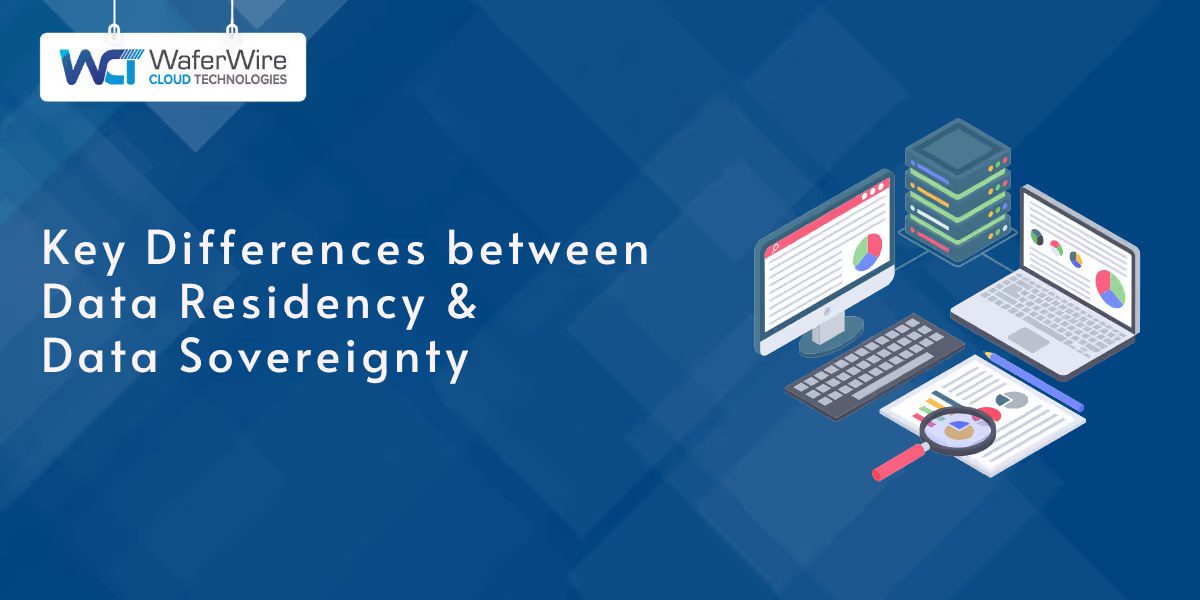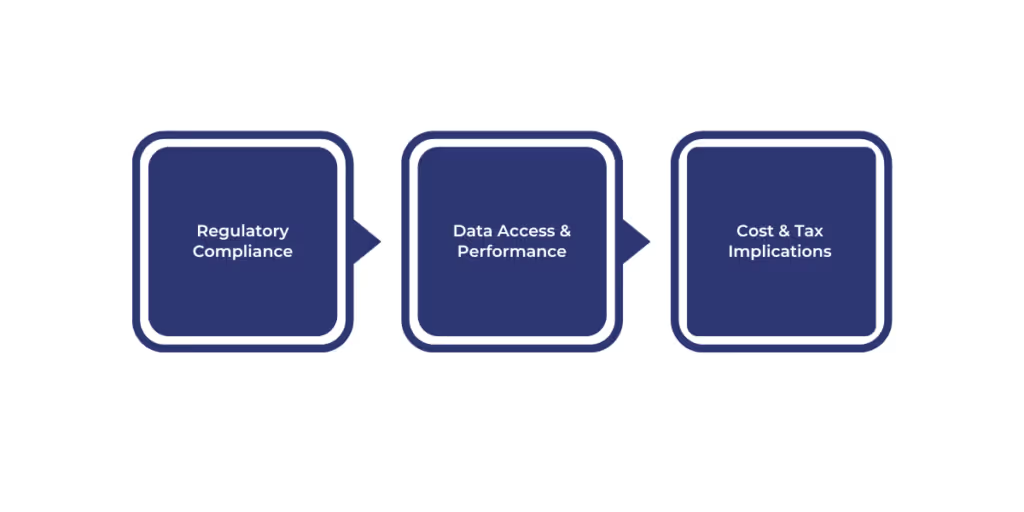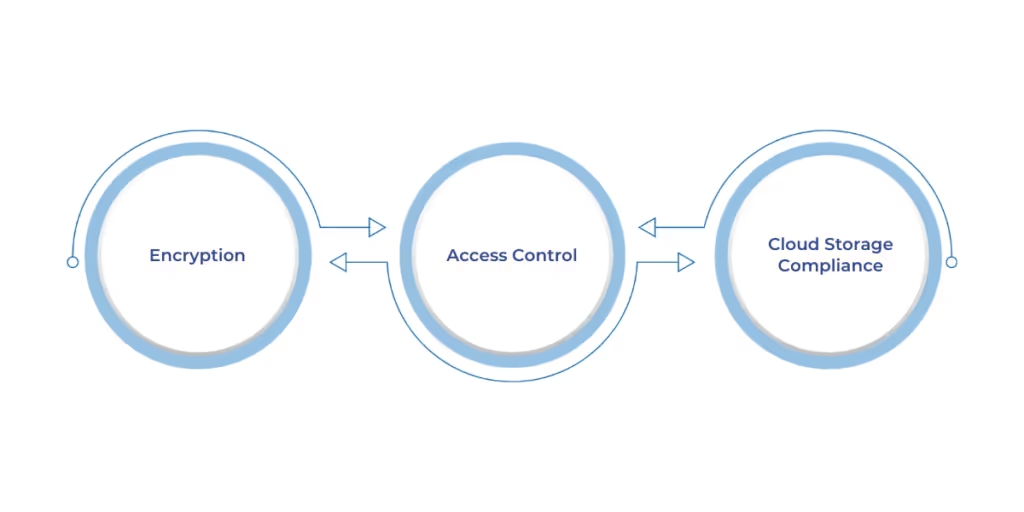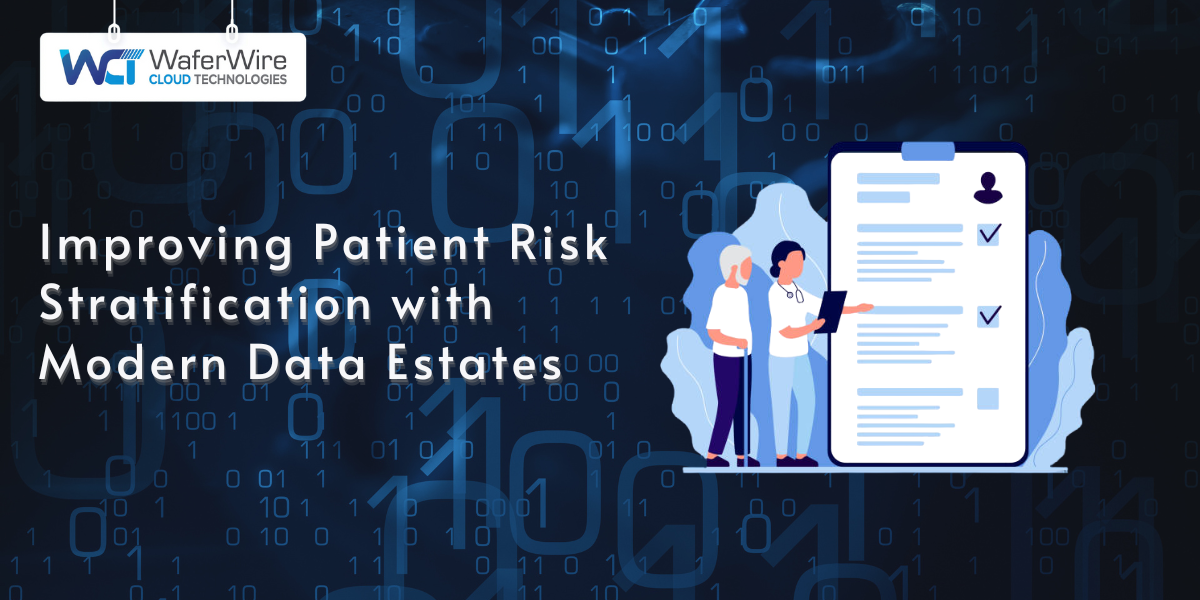
Key Differences between Data Residency and Data Sovereignty
Harish S
2025-03-28

Talk to our cloud experts
Subject tags
As businesses operate across borders and cloud computing becomes the norm, understanding where your data resides and who controls it is more critical than ever. With evolving regulations and increasing concerns over data privacy, two terms frequently surface in compliance discussions—data residency and data sovereignty. While they may sound similar, they carry distinct legal and operational implications that can impact your business profoundly.
So, what’s the difference? How do these concepts influence your choice of cloud service providers, data storage decisions, and compliance strategies? This article will break down the key differences between data residency and data sovereignty.
Understanding Data Residency and Data Sovereignty
Understanding the differences between these terms is essential for businesses looking to stay compliant with evolving regulations.
What Is Data Sovereignty?
Data sovereignty refers to a country’s legal authority over data stored within its borders. It means that any data housed in a nation is subject to its laws, regardless of who owns it or where the company is headquartered. Businesses handling customer data must comply with local regulations and applicable foreign laws.
Why Data Sovereignty Matters
More than 100 countries have enacted unique data protection laws, creating a complex compliance landscape for global businesses. Notably, the European Union's General Data Protection Regulation (GDPR) imposes strict data privacy requirements, with non-compliance resulting in substantial fines. For instance, in 2024, Uber was fined $324 million by the Dutch Data Protection Authority for improperly transferring driver data from the EU to the U.S. Similarly, in 2024, Meta faced a $263.5 million fine for a 2018 data breach affecting millions of Facebook users. These cases highlight the critical importance of adhering to data protection regulations to avoid significant financial penalties.
What Is Data Residency?
Data residency refers to the geographic location where an organization chooses to store its data. Companies often decide on a specific country or region based on regulatory requirements, business needs, or operational efficiency. Some governments enforce strict data storage laws, while others offer businesses flexibility in selecting storage locations.
Why Data Residency Matters
Many industries, including finance, healthcare, and government, must store data in specific jurisdictions to comply with local privacy laws. In some cases, regulations prevent organizations from transferring data across borders, while others require companies to keep a local copy of the data for compliance.
To grasp the essential differences, it’s crucial to recognize how data sovereignty and data residency impact a business’s operations and legal responsibilities. Understanding this distinction aids companies in managing their operations while fulfilling legal requirements across various regions.
Legal Framework vs. Geographical Location
While data residency determines the physical location of stored data, data sovereignty dictates the laws that apply to it. Companies must understand these differences to mitigate risks, maintain compliance, and protect sensitive information.
Data Residency: The Physical Location of Data Storage
Data residency refers to the geographic location where an organization chooses to store its data. Businesses may select a specific region for regulatory compliance, security, or performance optimization. However, storing data in a particular country does not necessarily mean it is governed only by that country’s laws. Companies may still be subject to foreign legal obligations based on their country of incorporation or contractual agreements.
Key Considerations:

- Regulatory Compliance: Businesses must store data in jurisdictions that meet industry-specific regulations (e.g., GDPR for EU businesses, HIPAA for U.S. healthcare).
- Data Access & Performance: Storing data closer to end users can improve performance, reduce latency, and enhance user experience.
- Cost & Tax Implications: Some regions offer financial incentives or stronger legal protections for companies that store data locally.
Data Sovereignty: Compliance with Local Laws
Data sovereignty means that data stored within a country's borders is fully governed by that country’s legal framework, regardless of the company’s headquarters or ownership. Governments may enforce strict data security, access control, and localization requirements.
Companies storing data in a foreign jurisdiction must assess the legal risks, as some laws grant government agencies access to data without the owner’s consent.
Key Considerations:
- Legal Control: The laws of the country where data is stored apply, even if the data owner is based elsewhere.
- Government Access: Some nations have broad surveillance laws that allow authorities to access or request data from local or foreign companies operating in their jurisdiction (e.g., the U.S. CLOUD Act and China’s Cybersecurity Law).
- Data Localization Requirements: Certain countries, such as Russia and China, mandate that citizens' data be stored exclusively within their national borders, restricting cross-border data transfers.
Difference between Legal Framework vs. Geographical Location
To clearly distinguish between data residency and data sovereignty, the table below outlines their key differences.
FactorData Residency
Data Sovereignty
Definition
Where data is storedWho has legal authority over dataFocus Physical locationCompliance with local lawsKey Regulations GDPR (storage mandates), PIPEDA, HIPAACLOUD Act (U.S.), China’s Cybersecurity LawCross-Border Impact Some laws allow data transfers with conditionsSome laws prevent foreign access to data
Next, we will explore the real-world implications of these regulations on compliance and data security.
Implications on Compliance and Security
The approach to compliance and security depends on where the data is stored and which jurisdiction governs its access. Organizations must fully understand the regulations of the countries where their data is located to ensure legal compliance and secure data management.
Compliance with Local and International Data Protection Regulations
Each country has its own set of laws that govern how businesses must store, manage, and protect data. The location where your data is stored, or its data residency, impacts which laws apply. However, data sovereignty affects who can access that data based on the laws of the country where it is stored.
Here are some examples:
The EU’s GDPR (General Data Protection Regulation) requires that any business that stores or processes EU residents’ personal data follow strict privacy rules. This applies regardless of whether the data is stored in or outside the EU. So, if a company based in the U.S. stores EU citizen data on servers in the U.S., the company must comply with U.S. law and EU GDPR.
GDPR allows for data to be stored in non-EU countries, but additional safeguards must be put in place to protect the data. For example, the CLOUD Act could allow U.S. authorities to access that data, even if it’s stored in a different country. This is a key issue for businesses handling sensitive data.
Security Measures Under Data Sovereignty and Residency

Data security is another major consideration regarding data residency and sovereignty. Businesses must store data in a specific location and secure it according to local laws.
- Encryption: Many countries require businesses to encrypt sensitive data both when it is stored (at rest) and when it is transmitted between systems (in transit). For instance, under China’s Cybersecurity Law, companies must encrypt and securely store critical data within China and ensure it is available for government access if needed.
- Access Control: Access controls prevent unauthorized access to sensitive data. Some countries impose requirements to ensure that only authorized personnel within the organization or government agencies can access that data in certain cases. To clarify, Russia has stringent data localization laws. It requires businesses to store Russian citizens’ personal data on local servers, and government authorities may request access to this data under specific conditions.
- Cloud Storage Compliance: Numerous cloud providers present sovereign cloud solutions, which entail having data centers in designated countries that comply with regulations regarding data residency and sovereignty.
The next section will explore the key challenges businesses face in ensuring data compliance and security when managing cross-border data storage.
Challenges in Ensuring Data Compliance and Security
The increasing complexity of data residency and sovereignty creates significant business challenges. As laws evolve and become more diverse, companies must be prepared to adapt.
Complexity and Evolving Nature of Legal Regulations
Governments frequently update or revise data residency and data sovereignty laws, making compliance a moving target. These changes can be hard to track, particularly for global business operations in multiple jurisdictions.
Solution: To manage this challenge, businesses must establish dedicated teams to monitor regulatory changes and implement proactive compliance strategies. This may include regular audits, automated tracking systems for legal updates, and working with local legal counsel to understand the impact of these regulations on data operations.
Differences in Legal Requirements for Data Storage
Another significant challenge is the differences in legal requirements for data storage between countries. Some countries mandate that specific data types remain within their borders, often due to national security or privacy concerns.
Solution: Companies should adopt a region-specific data storage strategy. This means selecting cloud providers that offer compliance certifications and region-specific data centers to ensure data stays within required jurisdictions. Businesses can use local cloud infrastructure and data residency solutions to prevent cross-border data transfer issues and comply with local sovereignty laws.
Conclusion
Understanding the difference between data residency and data sovereignty is crucial for businesses aiming to ensure compliance, security, and operational efficiency. These concepts directly impact how companies manage and protect data across borders, ensuring that their data storage strategies align with both current and future regulatory requirements.
At WaferWire, we understand that these challenges go beyond mere legal hurdles. We provide comprehensive solutions, from strategic consulting to implementation and continuous support. We assist you in confidently and easily navigating data residency and data sovereignty.
Take action today, and let’s build a future-proof strategy together.
Subscribe to Our Newsletter
Get instant updates in your email without missing any news

Copyright © 2025 WaferWire Cloud Technologies




.png)












